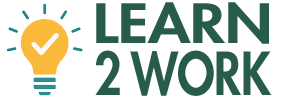Many students graduate knowing calculus or chemistry, but not how to budget or manage debt. That gap can make the transition to adulthood stressful. Building financial literacy for students before graduation ensures you leave school with confidence, not confusion, about your money.
This guide covers the skills, tools, and strategies you need to manage finances wisely now and after college.
Why Financial Literacy Matters Before Graduation
Graduation brings independence and major money decisions like rent, loans, and credit. Without preparation, debt and stress follow quickly.
Students who learn financial literacy before graduation know how to borrow wisely, save for emergencies, and manage credit responsibly. These habits build confidence that lasts beyond college.
Employers also value graduates who balance responsibilities, making financial awareness as important as soft skills.
Core Money Skills Every Student Should Know
Before graduation, every student should master basic financial habits. These core skills lay the foundation for independence.
Budgeting and Tracking Expenses
The first step is learning where your money goes. Use free apps like Mint or YNAB to track daily spending. These tools make it easier to spot patterns and adjust.
Simple student budgeting tips include setting a weekly food allowance or dividing income into needs, wants, and savings. Small changes now help you stretch every dollar.
Credit and Borrowing Basics
Credit is often a mystery until the first bill arrives. Understanding credit score basics is crucial: pay bills on time, keep balances low, and don’t open accounts you don’t need.
Students using credit cards should pay in full each month. This habit avoids interest and strengthens credit history, which will matter when renting apartments or applying for jobs that check financial responsibility.
Managing Student Loans
Most students rely on loans, but managing them early makes repayment easier. Keep records of balances, interest rates, and repayment options. Knowing how lenders calculate costs reduces surprises.
For extra guidance, see Understanding FAFSA: A Beginner’s Guide.
Saving and Building a Safety Net
It’s easy to assume saving comes later. In reality, an emergency fund as small as $500 can prevent bigger setbacks.
Even if you’re figuring out how to save money in college, small habits like setting aside 10% from part-time earnings or using student discounts can grow into real security.
Intro to Investing
Investing may sound like something to do years from now, but early action matters. Even $25 a month into index funds can grow significantly through compound interest. Learning investing basics for students builds confidence and reduces the intimidation factor.
Action Steps to Boost Financial Literacy Now
Building money confidence takes practice. These steps help students apply financial literacy lessons in real life before graduation.
Use Campus Resources
Most colleges offer workshops on budgeting, credit, or loans. Career centers may also provide career service internship help and guidance toward paid opportunities.
For more perspective, see The Importance of Internships (and How to Get One).
Learn by Doing
Practical experience is the best teacher. Open a no-fee student bank account, set up automatic savings, or test a side hustle for extra cash flow. These small steps give you control over your money.
If things seem overwhelming, check out Study Hacks for Students Balancing Work and School.
Tap Into Free Online Tools
Platforms like Investopedia explain money terms simply. Federal Student Aid provides resources for loan repayment planning. The more you explore, the less intimidating personal finance becomes.
Building Confidence for Life After Graduation
Practicing personal finance skills for college students before graduation prepares you for adult responsibilities like rent, insurance, and retirement savings. Think of this as early financial planning for young adults.
The goal isn’t to master every detail right now. Start with budgeting, add savings, and learn credit basics. Over time, you’ll build a toolkit of money skills that support both your career and personal goals.
Strong Habits for a Strong Future
Mastering financial literacy for students means more than balancing a checkbook. It’s about building confidence in your ability to handle money before graduation and beyond.
By budgeting, saving, protecting your credit, and taking advantage of campus and online resources, you set yourself up for independence and success.
Begin today with one small change. Your future self will thank you.




